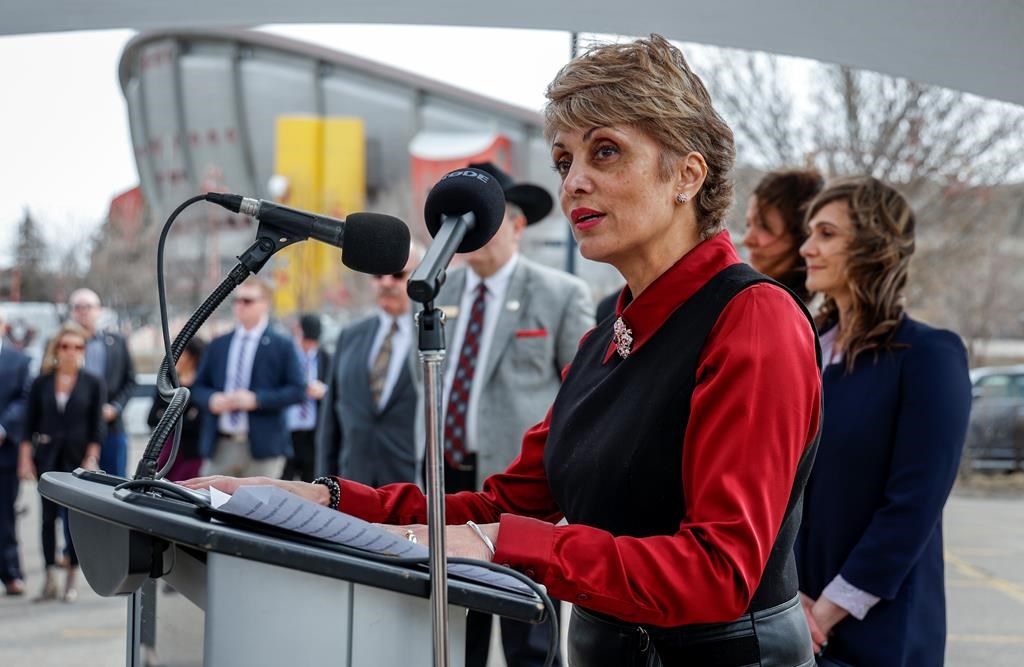Newfoundland and Labrador Tories hope new leader can turn back Liberal tide
Posted Sep 11, 2014 11:00 am.
This article is more than 5 years old.
ST. JOHN’S, N.L. – It’s much more than a leadership convention for Newfoundland and Labrador Tories gathering this weekend in St. John’s to select the province’s 12th premier.
It’s about resuscitating a party that some pundits say will need a miracle to rebound.
Desmond Whalen, vice-president of the provincial Young Progressive Conservatives, believes the three-man race that many say is too close to call will mark a turning point.
“I don’t think we’re old and tired by any means,” he said. “We’ve got a rejuvenated new energy put back into us now and I’m hoping some of those ideas are going to bring us back to where we need to be in the polls.”
About 750 delegates will vote Saturday, choosing between three former Tory cabinet ministers: Paul Davis, Steve Kent and John Ottenheimer.
A clear winner of 50 per cent plus one is not widely expected on the first ballot. The contender in last place will drop off, raising questions of how second-ballot support will play out.
Kent and Davis co-operated to win delegates in two St. John’s districts but have denied the fix is in against Ottenheimer.
Whoever becomes premier has a steep hill to climb. The Tories have held majority power since 2003 but have trailed the Opposition Liberals in successive polls. The party has lost four straight byelections and is expected to face three more as senior cabinet ministers continue to resign.
Premier Tom Marshall took over after Kathy Dunderdale quit the top job Jan. 24 amid growing doubts about her leadership. At 67, he’s more than ready to retire after seeing the party through its first aborted leadership process that saw three candidates, all political novices, withdraw.
Perceived secrecy has been a baffling but damaging Achilles heel for the Tories, Marshall said in an interview.
“We didn’t sit around the table and say: ‘Hey, let’s be a secretive government’ in any way.
“But then we recognized that people had that perception. We had to address it, and we did.”
One of the first things Marshall did as premier was announce that a three-member committee of independent experts led by former premier Clyde Wells would review the province’s access-to-information regime.
The panel’s assessment, now underway, includes changes passed in 2012 that blocked the release of ministerial briefing notes, increased protections for cabinet records, hiked fees and allowed ministers to reject requests as “frivolous” or “vexatious.”
The amendments were a political lightning rod for critics who suggested the clampdown was in part to thwart requests relating to the $8.5-billion Muskrat Falls hydro project now under construction in Labrador.
There were also questions about Crown corporation Nalcor Energy as manager of the development.
Duff Conacher, a board member of the national accountability group Democracy Watch, called it “dangerously undemocratic” that the auditor general can’t publicly release spending reports if they contain information that Nalcor Energy deems commercially sensitive.
Marshall said it’s vital to protect such data. But he said every effort must be made to ensure such redactions aren’t arbitrary or self-serving.
“The change I’d make is I would have an independent person assess whether it’s commercially sensitive or not.”
Marshall also mused about changes to future election timing. Provincial law now says that, when a premier resigns, the winner of a subsequent leadership race must call a general election within a year of being sworn in.
The botched first Tory leadership contest has added months to that timeline, Marshall said.
“Maybe (the election call) should be changed to within a year after the premier steps down.”
With four byelections held and three more expected to come — each at a cost of at least $100,000 — there have been calls for an early general vote. But contenders Kent, Davis and Ottenheimer have all said the party needs time to regroup before hitting the campaign trail.
Political scientist Stephen Tomblin of Memorial University of Newfoundland called that approach “arrogant.”
“It doesn’t serve the public interest. It certainly doesn’t serve the interests of the party because they’re losing a lot of byelections,” he said in an interview.
“They care more about their own personal interests,” Tomblin added. “I said awhile back that they were the walking dead. This is beyond the walking dead.”
Follow @suebailey on Twitter.










